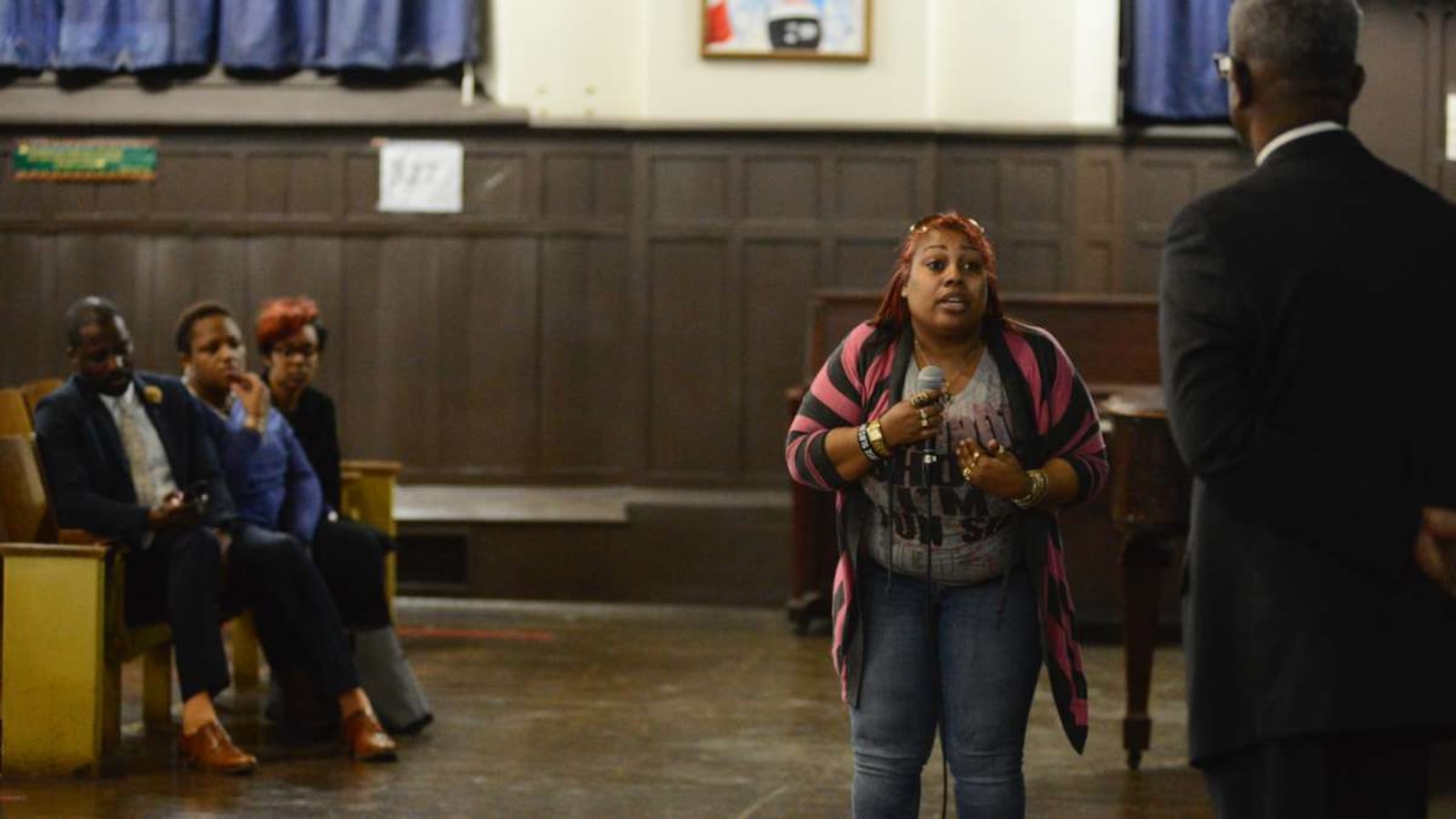This article was originally published in The Notebook. In August 2020, The Notebook became Chalkbeat Philadelphia.
The School District of Philadelphia is devoting $23.7 million to a new plan for intervention at 15 of its lowest-performing schools; $7.2 million of that is new District investment. The rest will come from redirecting funds now being spent at affected schools.
The District will provide additional resources and supports to the schools clustered in its "Turnaround Network," with a goal of lifting them out of the bottom quartile of the District’s quality rating within five years.
Until this point, the Turnaround Network has consisted of the 12 remaining schools that were designated "Promise Academies" by former Superintendent Arlene Ackerman in 2010.
As reported last week, the District plans to add four of its academically lowest-ranking elementary schools to the list: Theodore Roosevelt, E.W. Rhodes, S. Weir Mitchell, and Luis Muñoz-Marin.
And it has plans to remove Cayuga Elementary from the Turnaround Network based on student growth on state standardized tests.
District officials said that each of the turnaround schools will have an assistant principal, a full-time guidance counselor, and full-time teacher coaches for English and math.
Officials said K-2 classrooms will be capped at 20-1 student-teacher ratios; teachers and principals will receive extensive professional development; and technology-driven blended-learning models will be put at a premium.
"Our whole notion of this is creating great schools and great educational opportunities for all students using a set of proven tools," said Superintendent William Hite during a meeting with reporters Wednesday.
Hite couched the plan, in part, as a response to critics who say the District too often outsources its lowest-performing schools to charter organizations through the Renaissance process.
"When we did Renaissance several years ago, and recommended Renaissance this year, the first questions people asked were: ‘Why doesn’t the District do this work?’ And now the District is attempting to do this work."
Hite said this model would accelerate student achievement where the Promise Academies have failed.
In that intervention model, schools were initially given a bounty of added resources, and staff received extra pay to work longer hours and some Saturdays.
The District recognized that those turnaround attempts faltered after the first year when budget woes undermined the effort for a plethora of reasons.
"A lot of those strategies were based on extra stuff. …" said Hite. "It was less on the science of reading, or teaching reading. So all of the extra things were then removed, and there was nothing there behind those things to continue that improvement."
Half gone?
At the four newly selected schools, principals and staff will be required to reapply for their jobs.
Based on eligibility for state and federal turnaround grants, the District said it will allow no more than half of the current staff to stay at the schools. Teachers not chosen through a turnaround school’s site-selection process would be force-transferred elsewhere in the District.
District officials could not confirm the level of turnaround-grant funding for which they could be eligible.
But the Philadelphia Federation of Teachers has joined traditional education advocates in decrying this as a "destabilization plan."
"It’s the old ‘We under-resource the school, we blame the school for not having high performance, and we then get rid of the school or get rid of the staff,’" said union president Jerry Jordan.
Hite dismissed that criticism.
"We’re not trying to destabilize the schools. We’re trying to stabilize the schools and move forward," he said. "In some cases, just the introduction of a new approach could destabilize. So it’s important to understand if individuals are on board or not."
Hite also indicated flexibility on the 50 percent transfer provision.
Although he said that he didn’t "want to do anything that doesn’t make us eligible for federal or state monies for school turnaround" and that there "has been no proof" that existing faculty can dramatically improve outcomes, he later added that he would entertain proposals from principals who pushed back.
At a community meeting at S. Weir Mitchell Elementary in Southwest Philadelphia on Wednesday evening, first-year principal Stephanie Andrewlevich — recognized by District officials as a strong, capable leader — said she had conditions for returning to the school.
"I have made it very clear that if I am offered to remain, that will only happen if we have the ability to retain our staff," Andrewlevich told the few dozen people gathered in Mitchell’s auditorium. "If 50 percent of our staff is asked to leave, then all the work that we have done in the last year is nullified."


